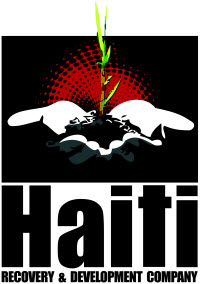The Government Facilitating Organization
After years of examining the relationship between host countries and the Non-governmental organizations that operate within their borders, I have come to the realization that vulnerable nations remain vulnerable and easily exploited when they cede administrative control of their country to outside interest. One needs to look no further than the country of Haiti to see my conclusion incarnate.
Before specifically addressing Haiti, let’s first briefly examine three important aspects as they relate to Non-governmental organizations; the what, when and the why.
Typically, Non-governmental organizations (NGOs) operate independently from any form of government, are not for-profit businesses and come from three major traditions – faith-based, humanitarian and philanthropic. Though NGO-type organizations have been around since the mid-1800’s, the phrase and enterprise model of today’s NGOs first entered into our lexicon and consciousness from within the halls of the United Nations circa 1945. Their designated role is to temporarily fill gaps in government services with a concentration on humanitarian issues, developmental aid and sustainable development.
By any reasonable standards of measurement, Haiti is a country with many complex and longstanding challenges. Born of slavery, tattered by revolution and financially crippled by an internationally imposed retribution program, modern day Haiti has endured foreign intervention and occupation, multiple coups, rampant corruption, numerous natural disasters and foreign exploitation. Most onlookers would agree, Haiti’s history reads like a Greek tragedy with pathos to spare. Enter the NGOs.
For perspective sake, Haiti has approximately 10 million citizens and is home to an estimated 10,000 NGOs. That equates to 1 NGO per 1,000 people, trailing only India as the highest ratio found anywhere in the world. This excessive ratio has lead many to label Haiti as “The Republic of NGOs.”
While no right-minded person can dispute the tremendous good that most NGOs do in the world, (they save thousands of lives and improve the lives of millions more), it’s fair to question the unmitigated role of today’s NGOs – especially those operating in Haiti.
Since NGOs are intended to temporarily fill capacity gaps in government services, one would assume that Haiti’s gaps are being systematically evaluated, comprehensively addressed and universally solved. Unfortunately, the opposite seems to be true. Complicating matters further, the Haitian government is completely in the dark with regard to the number and/or scope of projects taking place within its borders, the agenda of the donors, and the amount of funding received by the participating NGOs. Therefore, they are unable to measure the actual benefit of services to the Haitian people. Examples of this aberration can be found in the healthcare sector, education and human services, just to name a few.
One could argue, as many critics do, that NGOs have supplanted the government of Haiti for control of the country. To their way of thinking, NGOs are enablers of the status quo and they posses little interest in actually solving issues, as doing so would put them out of business. While I do not subscribe to such a harsh assessment, I wholeheartedly agree that something needs to change in Haiti. Apparently, so does Haiti’s Prime Minister, Laurent Lamothe.
During a speech at the 67th session of the UN General Assembly, Prime Minister Lamothe outlined the Government’s “roadmap” in coordinating humanitarian, development and charity-based organizations that operate in Haiti. “We don’t want to continue being known as an ‘NGO-Nation’ and this is why this roadmap of engagement comes at a crucial moment. We need better channeled support – led by the Government of Haiti.”
To that end, over the last two and a half years, I have been developing a support concept that is synergistically compatible with the road map Prime Minister Lamothe alluded to in his speech. In short, my concept, known to my collaborators as a Government Facilitating Organization (GFO), allows vulnerable nations to systematically and responsibly re-assume leadership of their own country. This is a tall order, especially in a country such as Haiti. In any event, host countries need a managerial apparatus that is sovereignty-centric, transparent, collaborative, and requires actual results for NGOs.
As I envision, a Government Facilitating Organization would operate solely in the interest of the host country. They would:
- Promote sovereignty
- Research and define census-base governmental requirements
- Define capacity gaps in government services and personnel
- Consult with government officials to define administration priorities
- Collaboratively draft capacity gap transition protocols
- Audit and analyze the impact of the NGOs presently in-country
- Perform worldwide audit of successful Nation State/ NGO activities
- Collaboratively draft NGO Certification Program
- Participate in a countrywide NGO Certification Program
- Collaboratively draft capacity gap-centric mandates for all certified NGOs
- Collaboratively communicate NGO-specific mandates and benchmarks
- Assist certified NGO’s in meeting specific mandates and benchmarks
- Audit “actual” vs. “mandated” results of government recognized NGOs
- Participate in punitive program for underperforming NGOs
- Continuously audit host country’s transition to self-reliance
In front of the international community, the Government of Haiti has expressed its desire to restore their rightful place as the administrator of their country. Their goal is to one-day become a self-reliant member of the world community, and they understand that significant institutional changes must be embraced to achieve such an outcome. The GFO concept is one such institutional change I hope they consider.
Search Our Site
Sign Up for Our Newsletter
Recent Posts

Dignity, Healing is a Two Way Street. Jim Lange HRDC
Haiti Trip (January ‘19); Day Five: I have arri...
Jim Lange works on Job Creation, Religion and Higher Education in Haiti
Haiti Trip (January ‘19); Day Four: Today, I tu...
Sunday in Haiti. Friendship, Simple Meal. Healing.
Haiti Trip (January ‘19); Day Three: It’s a bea...

